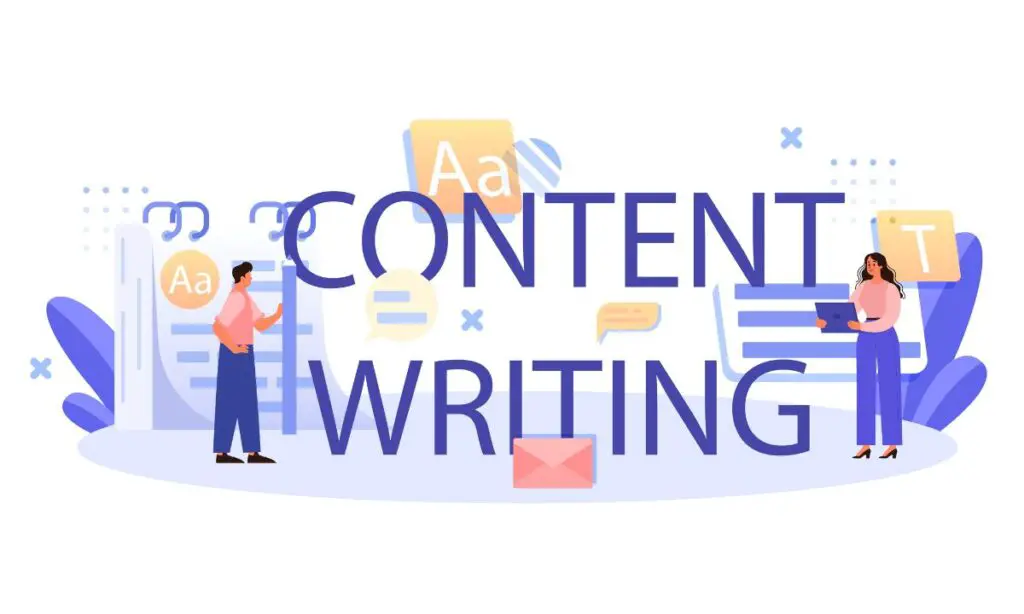Content writing is an essential part of our digital lives. Whether scrolling through social media, reading a blog, or watching a how-to video, content writing is the backbone of it all. But did you know there are different types of content writing, each tailored to a specific purpose? If you’re a writer looking to specialize or a business trying to pick the right format, understanding these types can make all the difference.
This blog will explain the types of content writing, their roles, and how to choose the right one for your goals. We’ll also explore job opportunities in this dynamic field. Ready? Let’s dive in.
What is Content Writing?
Content writing is the process of creating written material for various platforms, such as websites, blogs, advertisements, and social media. The goal? To inform, entertain, or persuade an audience. Whether it’s a detailed article or a snappy Instagram caption, content writing connects brands with their readers.
But here’s the thing: Not all content is created equal. Each type has unique characteristics, goals, and formats. Let’s break them down.
1. Blog Writing
What It Is
Blog writing involves creating informative or entertaining articles published on websites. Blogs are a great way to attract an audience, share knowledge, and build trust.
Key Features
- Conversational and engaging tone.
- Covers a range of topics, often based on keywords for SEO.
- Length can vary from 500 to 2,000+ words.
Examples
- “10 Easy Recipes for Beginners”
- “The Ultimate Guide to Budget Travel”
Why It’s Important
Blogs drive traffic, establish authority, and nurture customer relationships.
2.Copywriting
What It Is
Copywriting focuses on persuasion. It’s used in marketing to inspire action, like buying a product or signing up for a service.
Key Features
- Short and snappy sentences.
- Focused on benefits and emotional triggers.
- Strong calls-to-action (CTAs).
Examples
- “Buy One, Get One Free!”
- “Transform Your Skin in Just 7 Days”
Why It’s Important
Effective copywriting drives sales and conversions.
3. Technical Writing
What It Is
Technical writing translates complex information into clear, user-friendly content. It’s essential in industries like technology, engineering, and healthcare.
Key Features
- Precise and concise language.
- Focus on instructions and clarity.
- Includes charts, diagrams, or visuals when necessary.
Examples
- User manuals.
- Software installation guides.
- Whitepapers.
Why It’s Important
Technical writing ensures that users understand and use products or services correctly.
4. SEO Content Writing
What It Is
SEO (Search Engine Optimization) writing focuses on creating content that ranks well on search engines like Google.
Key Features
- Keyword-rich without feeling forced.
- High readability and engaging format.
- Includes meta descriptions, alt text, and internal links.
Examples
- Blog posts.
- Product descriptions.
- Service pages.
Why It’s Important
SEO writing increases online visibility and attracts organic traffic.
5. Creative Writing
What It Is
Creative writing allows imagination to take center stage. It’s often used for storytelling and entertainment.
Key Features
- Narrative-driven and emotional.
- Focuses on characters, plots, or themes.
- May include poetry, scripts, or short stories.
Examples
- Novels.
- Screenplays.
- Branded storytelling content.
Why It’s Important
Creative writing builds emotional connections and keeps readers engaged.
6. Ghostwriting
What It Is
Ghostwriting involves writing content for someone else, where the writer is not credited.
Key Features
- Mimics the client’s tone and voice.
- Can involve books, blogs, or articles.
- Requires confidentiality.
Examples
- Celebrity memoirs.
- Business leaders’ thought pieces.
- Blogs for influencers.
Why It’s Important
Ghostwriting helps individuals share their stories without needing to write themselves.
7. Academic Writing
What It Is
Academic writing is structured, research-based content used in educational or scholarly contexts.
Key Features
- Formal tone and style.
- Evidence-backed arguments.
- Citations and references.
Examples
- Research papers.
- Essays.
- Theses.
Why It’s Important
Academic writing advances knowledge and supports education.
8. Social Media Content Writing
What It Is
Social media writing is all about creating bite-sized, shareable content for platforms like Instagram, Twitter, or LinkedIn.
Key Features
- Short, engaging, and conversational.
- Often includes emojis, hashtags, and visuals.
- Tailored for platform-specific audiences.
Examples
- Instagram captions.
- Tweets.
- LinkedIn posts.
Why It’s Important
Social media content drives engagement and builds brand awareness.
9. Email Content Writing
What It Is
Email writing involves crafting messages that connect with subscribers, customers, or leads.
Key Features
- Personalized and concise.
- Strong subject lines and CTAs.
- Can be promotional or informational.
Examples
- Newsletters.
- Promotional offers.
- Welcome emails.
Why It’s Important
Emails build customer relationships and boost conversions.
10. Video and Podcast Scriptwriting
What It Is
Scriptwriting creates dialogue and content for visual or audio formats.
Key Features
- Conversational and engaging tone.
- Includes clear instructions for delivery.
- May integrate storytelling.
Examples
- YouTube video scripts.
- Podcast episodes.
- Webinar presentations.
Why It’s Important
Scripts keep audio-visual content organized and impactful.
11. E-books and Whitepapers
What It Is
These are long-form content formats used for educational or lead-generation purposes.
Key Features
- In-depth exploration of topics.
- Formal tone and well-researched.
- Often gated as lead magnets.
Examples
- “How to Start a Business” guide.
- Industry-specific whitepapers.
Why It’s Important
They establish authority and educate audiences.
12. Journalism and News Writing
What It Is
Journalism focuses on reporting current events and factual stories.
Key Features
- Objective and concise.
- Prioritizes accuracy and timeliness.
- Covers news, features, or investigative pieces.
Examples
- News articles.
- Feature stories.
- Editorials.
Why It’s Important
Journalism keeps the public informed and aware.
How to Choose the Right Type of Content
- Know Your Audience: What do they need or want to read?
- Define Your Goals: Are you aiming to inform, entertain, or sell?
- Consider the Platform: Tailor your content to the medium (e.g., blogs for websites, captions for Instagram).
Content Writing Jobs
Why It’s a Great Career
- Flexibility to work remotely.
- High demand in various industries.
- Opportunities for specialization.
Popular Roles
- Blog writer.
- SEO specialist.
- Copywriter.
- Technical writer.
FAQs
Q: What is the main purpose of content writing? A: The main purpose of content writing is to inform, entertain, or persuade an audience, often while promoting a brand or achieving specific marketing goals.
Q: How is content writing different from copywriting? A: Content writing focuses on providing value through information and storytelling, whereas copywriting aims to persuade readers to take action, such as making a purchase.
Q: What skills are essential for a content writer? A: Strong writing skills, research abilities, SEO knowledge, adaptability to different tones, and an understanding of the target audience are crucial for a content writer.
Q: Can anyone become a content writer? A: Yes, with practice, dedication, and a willingness to learn, anyone can develop the skills needed to become a content writer.
Q: How do I start a career in content writing? A: Begin by building a portfolio, learning SEO basics, and writing samples in different niches. Freelance platforms and networking can help you find initial projects.
Q: Which type of content is best for SEO? A: Blog posts, product descriptions, and service pages are excellent for SEO as they can target specific keywords and provide value to readers.
Q: How long does it take to write good content? A: It depends on the type and complexity of the content. A well-researched blog post might take several hours, while a social media caption can be created in minutes.
Conclusion
Understanding the different types of content writing is crucial for anyone looking to succeed in this field. Whether you’re a business choosing the right type of content or a writer exploring your niche, this knowledge will guide your decisions. Ready to get started? Share your thoughts or questions below!
Welcome to Digital Profit Track, sharing insighs on digital marketing, freelancing, and online earning.
Contact me at: team@digitalwsf.com




